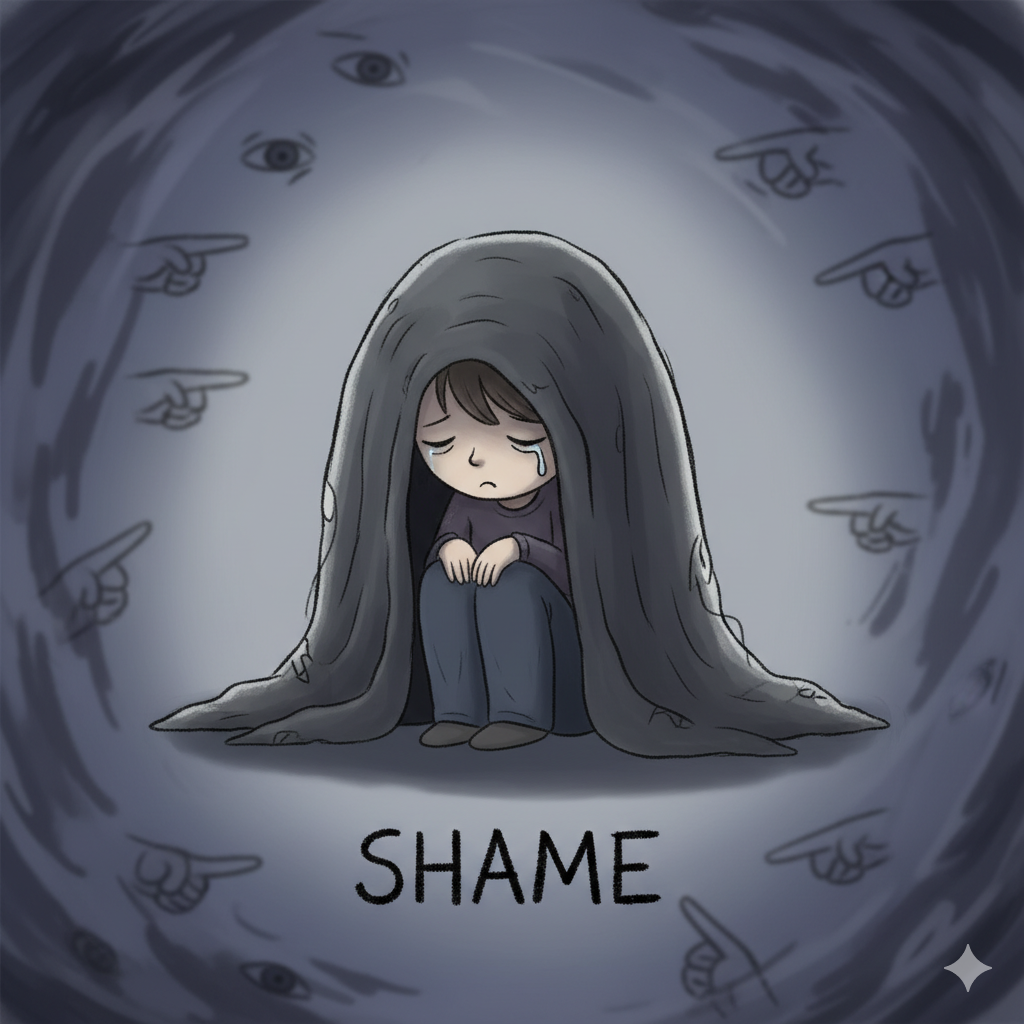Congrats! You Failed! : Part 4 - The role of shame

THE ROLE OF SHAME
There is no shame in falling, only in failing to use the fall
One reason why babies learn languages faster than adults is simple: babies don’t know shame. These adorable creatures will babble funny words without hesitation to mimic what the adults are saying. Through repetition, they eventually master speech. Adults, on the other hand, often let shame silence them before they even try.

The two dimensions of Shame
Shame has 2 main dimensions of operation when it comes to failure:.
Shame Before the attempt (Imagined Shame)
Like all emotions, the anticipation of it can be more powerful than the emotion itself. Shame is no different. The fear of shame can be more powerful than shame itself. Due to this, most people do not pursue their goals in the first place.
Shame after the attempt (Actual Shame)
The Shame we feel after failure can cause people to give up on their goals after only one attempt. Like most success stories, you need to keep trying while learning from your mistakes.
Understanding shame
To combat shame, you first need to understand it.
Shame is a construct created by a group of people (society) with similar norms. These norms define a set of acceptable ways of living; inability to fit into that way of living gives rise to shame. Shame is basically a tool to drive conformity, which in turn is necessary for a society to function as a whole.
Let's use an example to make it clearer:
Wearing your sexy dress to church can be quite embarrassing. But considered acceptable at the nightclub. Conversely, wearing your church dress to the club may be quite embarrassing, but wearing that same dress to church is considered acceptable.
The embarrassment you felt was not about the type of dress you wore, it is because you didn't fit into the acceptable way of dressing. And that is the concept of Shame.
Now that we understand the concept of shame, let's see how we can break free from its shackles.
How to break free
We live in an era where society views failure as unacceptable. This makes it feel shameful and a sign of inadequacy. But the truth is: There is no shame in going after what you love, and if you failed in the process, you should be celebrated for trying, instead of shunned for it.
In reality, failure is a key ingredient to great success. Society should be modified to accept failure as a path to success and reward those who even try. Unfortunately, society will not catch up anytime soon; hence, you need to break free from the illusion of shame associated with failure, even when society still deems it unacceptable.
And remember, shame is not a fact, but a feeling, and a feeling shouldn't stand between you and your goals.
In the next session, we will learn how not to linger in our failures, but learn and move on quickly




